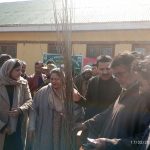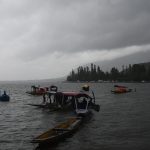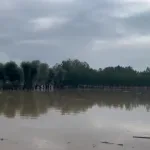Srinagar, Feb 17: ICAR-sponsored ten day’s training course on “Recent Advances in Drought Stress Management of Temperate Crops: Present Status and Future prospects concluded in the Division of Basic Sciences and Humanities, Faculty of Horticulture, SKUAST-Kashmir. The training program held from Feb. 4 to 13, 20125 brought together scientists, researchers, academicians, and professionals across the country to discuss the latest developments in drought stress management and climate resilience in temperate crops. Prof. Arshad Mughal, Associate Director Research attended as chief guest during inaugural session. He underlined the mounting challenges.
The training programme featured interactive sessions, hands-on demonstrations, and expert lectures by renowned scientists and subject matter specialists. Topics such as drought tolerance mechanisms, physiological and molecular responses of crops to water stress, innovative agronomic practices, and biotechnological approaches for drought mitigation were extensively covered. AI-based crop modelling, and precision agriculture techniques aimed at improving drought resilience in temperate crops. The resource persons were invited from various prestigious institutions across India. The trainees got the opportunity to interact with notable experts in the field and got enriched with the understanding of drought stress management. At valedictory function Vice Chancellor of SKUAST-Kashmir Prof. Nazir Ahmad Ganai presided over the function. Prof. Javeed I. A. Bhat, Head, Division of Basic Sciences & Humanities welcomed the HVC for his consent to address the valedictory ceremony and Prof F. A. Khan Course Director briefed about the training course. In his address, Vice Chancellor emphasized the urgent need for scientists to develop climate-smart and future-ready crops that can withstand extreme environmental conditions. He stressed upon young researchers to take a multidisciplinary approach in addressing climate challenges and harness emerging technologies for sustainable agriculture and food security.








